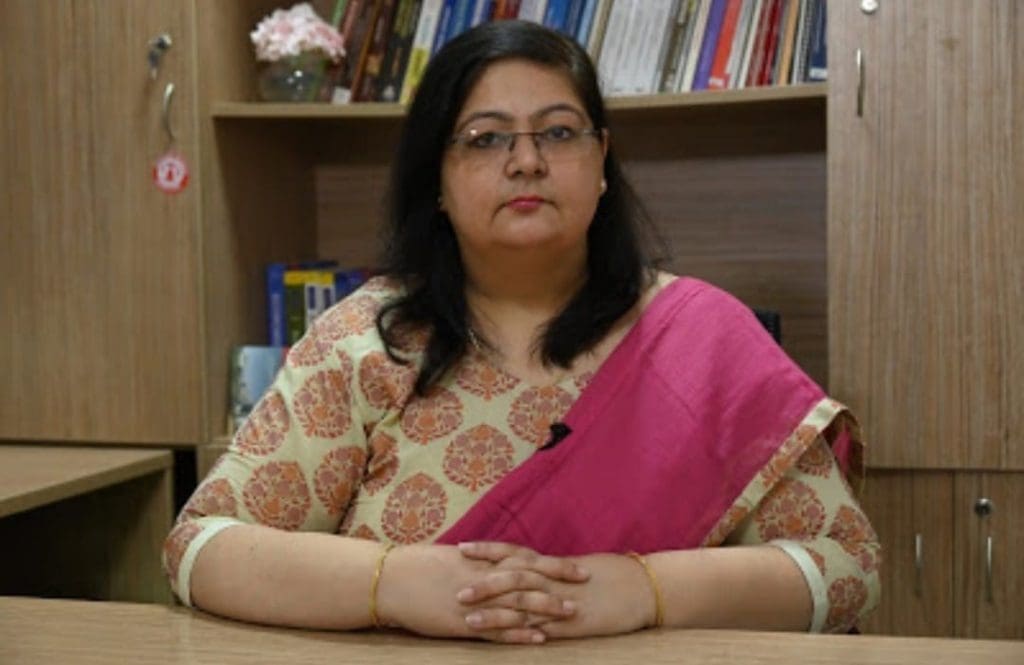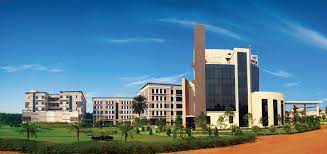Today’s Traveller invites Dr. Anjali Midha Sharan, Dean- Research & Development and Humanities and Social Science, GD Goenka University to share her insights on how the delivery of education is set to undergo a permanent change.
Today’s Traveller: How do you see the change in the future of jobs in various industries?
Anjali Midha Sharan : The recent pandemic has led to a massive destabilization of plans, routines, interactions, sense of order, and security. It has posed threats to health, life, work, etc., and has therefore resulted in very high levels of anxiety.
Psychologists like Erikson believe disruption causes ‘Existential fears’ and may lead to behavioural change. The pandemic has revealed vulnerabilities and has also created opportunities for the extraordinary potential to surface. Policymakers, educators, communities have had to make quick decisions that will have long-term impacts across sectors.

Employability, especially post covid 19, would not mean only domain knowledge or theoretical knowledge. Techno- managerial skills alone will not be enough. We may acquire technical skills but they may not be enough for managing the uncertainty of existence. Physical, mental, and spiritual health will probably gain more importance thereby influencing work policies, workplace designs, and lifestyle choices.
We will see more opportunities for work from home, reduced physical travel, the exponential rise in-home delivery of products and consumables, emphasis shifting on the rapid pace of technology integration and innovation across traditional sectors.
As people shift to focus on improving health, relationships, spiritual connections, we will see rapid innovation across all sectors, entrepreneurship will lead to newer work opportunities and incentivized work plans, localized sourcing of staff, re-skilling, and up-skilling. Delivery of education may therefore be set to undergo a permanent change.

GD Goenka University 
GD Goenka University
Today’s Traveller: In what ways can new AI applications and VR be adapted to create successful e-training models in digitalized classrooms?
Anjali Midha Sharan : Since physical access is limited, VR and AI technologies have opened up avenues for experiencing scenarios ‘as good as’ being in the actual situation. Usage of such technologies has enabled educators to maintain continuity of academic progress while ensuring physical and social distancing.
It is understood that adults learn by doing, therefore simulations, virtual experiences have opened up access which otherwise during the restrictions posed by the pandemic, had become limited. This is a classic example of disruption leading to innovation. When adapted for teaching, these technologies facilitate better understanding and application of concepts, open up opportunities for real-life problem solving, and fosters skills like teamwork, collaboration, critical thinking, adaptability, and innovation.
Today’s Traveller: With employment being technology-driven over the next two decades, what new skills need to be imparted to students to remain employable.
Anjali Midha Sharan : Technology transcends global and boundaries opening up several new opportunities and access across sectors therefore there is a need for skills beyond just theoretical knowledge.
With the rapid integration of technology across sectors, the need for developing competencies to embrace and adapt to innovations has emerged as an important need to drive businesses of the future. Several studies have shown that the students who had taken courses online had learned as much as they would have learned in a traditional academic setting. Universities may however be teaching students for careers that may not exist in 3/5 years.
There is therefore a need for re-designing a curriculum that focuses on skill development alongside theoretical knowledge. A student of Engineering for example should have access to courses of Liberal Arts as well. Technical skills may facilitate procuring the first job but to stay employable, one will need an expanded skillset.
Lifelong skills that go beyond just tech-savviness like resilience, ability to adapt, ability to communicate and engage, critical thinking & creativity, Innovation, emotional Intelligence, commitment to lifelong learning are the need of the hour.
Today’s Traveller: In what other ways will teaching and education change?
Anjali Midha Sharan : We have recently seen several experiments with creativity and innovation w.r.t, pedagogy, the mode of teaching, instruction styles, and assessments. Brick and mortar classrooms are no longer sole centers of learning. Past paradigms are getting challenged, there is increased sharing of power between instructor & student with the emphasis being on support, understanding, exchange, negotiation, autonomy, and increased use of technology.
Focus can no longer be on just completing the syllabus. Emphasis needs to be on building connections in online communities and establishing manageable emotional relationships. Emphasis needs to be on teacher-student relationships where technology is an integral tool of the classrooms of the future.
Educators may need to unlearn and relearn, derive meaning of existence in the period of uncertainty, develop a curriculum that prepares students to deal with the inherent uncertainty of existence, and not cultivate a stubborn intellect through packaged modules.
There needs to be the realization that what they teach in a physical classroom, may not work well when replicated online in a synchronous lecture due to not just their own limitations but also the way technology was being received by the students. Therefore the entire education system needs an overhaul through policies, regulatory prescriptions, curriculum design, and faculty training.
Today’s Traveller: Is the role of teachers as motivational leaders more critical today than ever before?
Anjali Midha Sharan : With the realization of the challenges of the dynamic worldwide scenario, educators seem to be realizing the need for a constructivist approach to teaching and learning with the classroom being a community engaged in inquiry, led by the teacher.
This leads to increased student choices and control, the need for ‘just in time modules’, new forms of assessment, open educational resources, MOOCs, and maybe a blended learning model with flipped classrooms being the new normal.
Technology has also led to the massification of education while increasing access. With access amidst uncertainty, there are several issues which the faculty need to be cognizant of and reach out to extend their support for helping students deal with mental health issues. These issues have surfaced due to economic slowdown, challenges of adapting to technology, the loneliness of remote learning, distress of lost opportunities, sedentary lifestyles, lack of resources, physical safety while ensuring continuity of education and quality standards.
Teacher-student relationships are becoming increasingly important as both are adapting to the rapid changes in the delivery of education and dynamic global scenarios. Both are also facing personal challenges and the need for transforming approaches to seeking and delivering education.
Read More: Education



